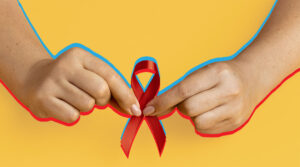For a long time, fear has been considered the driver of behavior change, and this includes sexual relations. Talking about the dire consequences that sexually transmitted infections (STIs) can cause seemed to be enough to promote condom use and safer practices, but this is not necessarily the case.
The burden of stigma, shame and fear hinder the prevention of sexual infections, since nobody wants to be singled out for having one of them. This can lead to denial of reality, either clinging to the idea that they do not have an STI, or avoiding seeking medical attention so as not to risk someone else finding out or having to carry a treatment that makes your situation evident.
In order to free the subject of STIs from this stigma in the new generations, the civil organization Siecus, dedicated to promoting sexual education in the United States for almost 60 years, proposes a series of strategies to talk about these infections without basing in negative concepts.
- You have to open the conversation about sexual health more often and earlier in life. To begin with, you always have to call the parts of the body by their name. That is the first step to eliminate the idea that there are things that are not talked about. The ultimate goal is for sexual health to be seen as normal as other aspects of well-being, such as oral health or nutrition.
- Sexual health is not just the absence of disease. The World Health Organization (WHO) has already said it: sexual health is not limited to the absence of suffering, but includes a state of physical, mental and social well-being in relation to sexuality. This requires a positive and respectful approach to sexuality and sexual relations, as well as the possibility of having pleasant and safe experiences, free from coercion, discrimination and violence.
- Reconsiders the language to describe or identify people who have an STI. It is important to focus concepts on people, not infections. Language can perpetuate stigma, so changing the words to refer to those who have an STI can also change the perception of them by no longer basing it on stereotypes. These people can be asked what they call themselves, and also use medically appropriate language.
4. You have to know the stories of those who have an STI. It must be recognized that many people have STIs, and that these infections are not a consequence of “bad behavior”. It is not a moral problem, but a medical condition. It is still rare to find people who share their stories of living with an STI, but there are, and it is good to listen to them to give a face and a name to what has seemed distant for so long.
5. Remember that STIs are very common. Statistics are important, as they help the mind to get an idea of why an issue is important and how big its impact is. However, numbers are not everything. It is very valuable to tell stories that make sense of those numbers, since they let us know that whoever has an STI is not very different from the rest of us, in addition to the fact that some infections, such as the human papillomavirus (HPV), are so common that most of us will have at some point in life.
6. Promote the conversation about STIs with your sexual partner or partners, your friends and your close circle. This step is not about sitting down to have “the talk” about STIs with the person of your choice; rather it is about addressing the issue in different scenarios, promoting a positive and respectful perspective. For example, you can intervene when someone makes a joke about STIs or stigmatizes others for that reason. Show empathy for someone who is afraid of contracting an STI, don’t feed their fear and treat it like any other health problem. Finally, negotiate safer sex practices with your partner and come to an agreement that is satisfactory to both of you.
And even if we remove the weight of the stigma, no one wants a new infection in their life, whatever it is. Therefore, if you want to protect yourself in an easy and accessible way, use a condom in all your sexual relations. At AHF Latin America and the Caribbean we have them free for you, along with free HIV detection tests. Come to our offices in your country or write to us by WhatsApp and make an appointment today.





